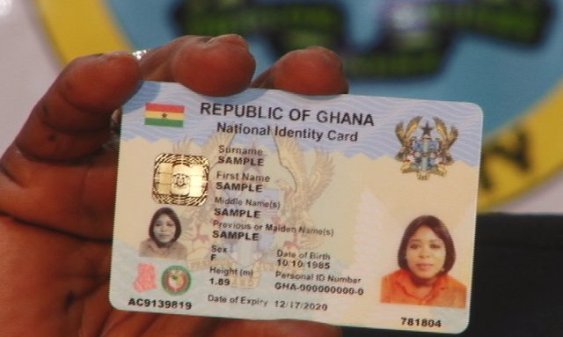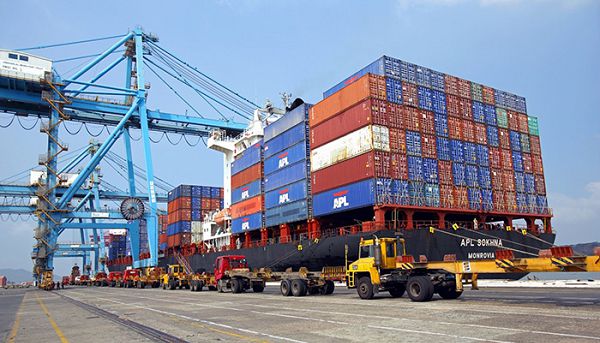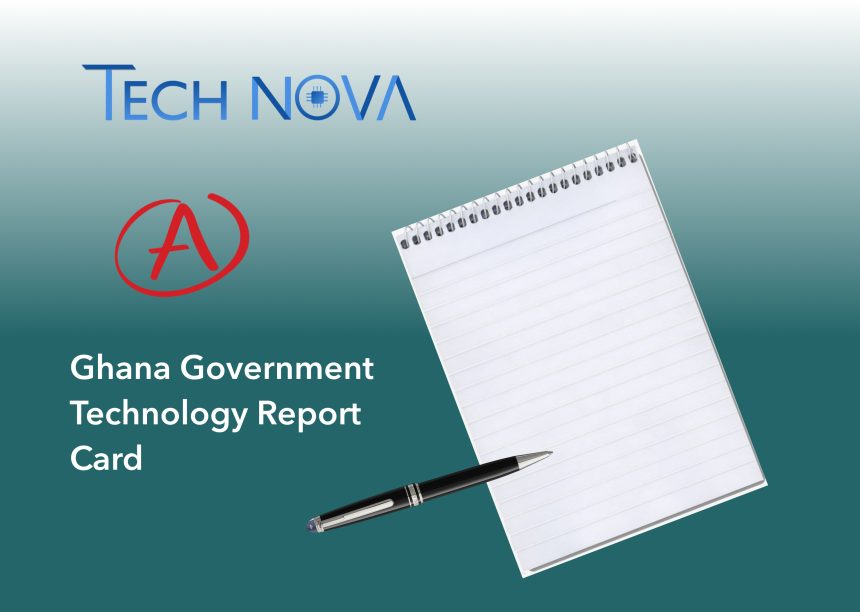In 2016, Ghanaian citizens voted in a new government into power. The new NPP government led by Nana Akufo-Addo, came in with an agenda to digitize Ghana’s government services. This agenda is currently being led by Vice President Mahamudu Bawumia.
Fast forward to 2019 and the government has so far made true on some of its promises to improve government services utilizing technology. But there have been false starts along the way with some projects seemingly in limbo and not bearing results.
At Tech Nova, we’ve assessed some of the current government administration’s major technology projects. We’ve outlined most of the projects the government has embarked on and graded them on a scale.
The projects we reviewed and graded as follows:
- Ghana National ID Card Project
- Digital TV Transition
- Digital Address System (Ghana Post)
- Ghana Ports Digitisation
- Health Services
- E-Government Project
- Digital Business Registration
- Justice System
- Online Passport Application
Ghana National ID Card Project

The Akufo Addo government in 2017, announced the introduction of a new Ghana ID Card. The Ghana Card is a biometric card that is an inclusive card for identification at Banks, health facilities and other identification in Ghana. The project was to be completed by the National Identification Authority (NIA).

Fast forward and the project is still currently being undertaken with some hiccups including late deadlines for registration citizens and technical issues.
Problems ranging from the slow manual registration process to slow printing of cards of registered individuals have been reported. At the current pace, it’s hard to tell if the majority of Ghanaians will have their National ID cards by the end of 2019.
The project may be ambitious but the implementation and track record of the National Identification Authority leaves much to be admired.
Grade: D+
Digital TV Transition

The Digita TV transition project was a project started by the previous administration to fully switch from analog to digital TV. The project is currently being taken by the Ministry of Communication.
The previous government administration signed the Geneva 2006 (GE06) Agreement, which established the Digital Terrestrial Broadcasting Plan in the frequency bands 174 – 230 Megahertz (MHz) and 470 – 862 MHz.
The Agreement set 17 June 2015 as the deadline for the stoppage of international protection for analog broadcasting transmissions. This meant that countries who had signed up for that agreement would cease analog broadcast and move them over to digital broadcast transmissions.
The Ghana Government has missed several deadlines for transitioning over to digital TV and now there are reports that the Ministry of Communication wants to start charging consumers for free to air channels.
With no clear plan or direction, it looks like the Digital TV switchover for Ghanaians is currently in limbo.
Grade: F
Digital Address System (Ghana Post)

When the Akufo Addo government came into power, they stated that they would be addressing the country’s poor addressing system by utilizing digital technology to help solve the problem.
In 2017, the government launched a Digital Addressing System in the form of a mobile app called “GhanaPostGPS“. The app’s main feature was for local citizens to generate a unique 6 digit character using GPS on their phone at either their residences or places of business.
When we reviewed the Digital Addressing System when it was first launched, we had some concerns, specifically about trying to solve Ghana’s addressing problem through the use of a mobile app.
While the app is currently fully functional and usable, it doesn’t look like it’s been fully adopted with only a handful of businesses displaying their digital addresses at their stores or even on their websites.
We’ll have to wait and see if there’s any improvement or increase in adoption in the near future.
Grade: C
Port Digitisation

The digitisation of processes at Ghana’s ports was a project which was spearheaded by the Vice President. The project was to move most of the clearing processes from manual to digital. Although there was initial pushback, the transition appears to have gone on well.
It has been reported that the cost of business at the port has reduced by 75%.
One example cited states that cost importers used to which was GHC 1280 has reduced to GHC 320.
Grade: A
Health Services

With bad road infrastructure to remote areas of the country, health care delivery to hospitals and clinics in those remote areas is a challenge. To try and combat this challenge, the government tried a novelle approach to health care delivery in remote parts of the country: Drone delivery.
In 2018, the government signed a partnership with Zipline Ghana to deliver health care supplies and medication.
With some questioning the move at first, the project appears to be producing results. In recent news, there has been an establishment of a second distribution centre for drone deliveries in Kumasi.
Although the topic of improving road infrastructure still lingers, the drone delivery project appears to be paying dividends in the short term.
Another area that the government promised in 2017 was to improve was health records, specifically, digitisating health records to make it easier for patients to access them at different health institutions.
But there hasn’t been any updates on the progress on this promise as yet and if it’s currently making any progress.
Grade: B
E-Government – Digital Business Registration/Online Tax Payment

The E-Ghana Project, a project Ghana undertook with the World Bank has long been an ongoing project to digitise government public services.
One digitization project under E-Ghana was the digitisation of the Register General’s Department which would enable people to register for businesses online. One component was the registration of a Tax Identification Number (TIN) and another was registration of businesses online.
Online registration of TIN numbers is currently available for users but there had been reports of delays by some users of not getting their TIN numbers when they tried to register online.
The same applies to the online registration of businesses. Some businesses have registered online while others have difficulty with the online process.
Citizens can now pay for their taxes online through an online portal.
Grade: C+
E-Government – Online Passport Application

Another component of the E-Government was the digitisation of the Passport Application system. Ghanaians would be able to go online and apply for or renew their passports for a fee.
The project appears to be working very well with Government now offering a premium service for faster processing of passports for GHC 100 (Compared to GHC 50 for the regular process)
Grade: A
Miscellaneous
The government has embarked on other projects including the establishment of Technology Parks and Hubs (eg. Accra Digital Centre).
Although it was announced this year, the E-Justice system (as part of E-Government) hasn’t fully taken off to be given a full assessment yet.
Tech Nova Government Overall Report Grade: C
For our technology report card, Tech Nova would give the current government an overall grade of C.
Some of the digitisation initiatives can definitely be applauded, but there are implementation issues of some of the projects which need to be addressed.
The National ID Project is still a work in progress and the benefits of the general citizenry having access to a National Identity Card would be a welcome to cut out the various IDs Ghanaians have to obtain for basic services.
Let us know what you think of our grading of Government and its use of technology. Is too fair? Too harsh? Too lenient? Let us know in the comment section or on our social media pages.
In calculating our scores, we used the Grade scale below:
| Grade | Grade Point |
| A | 4.0 |
| A- | 3.7 |
| B+ | 3.5 |
| B | 3.2 |
| B – | 3.0 |
| C+ | 2.7 |
| C | 2.5 |
| C – | 2.0 |
| D + | 1.5 |
| D | 1.0 |
| F | 0.0 |








